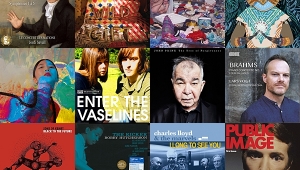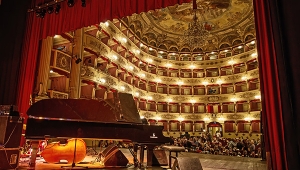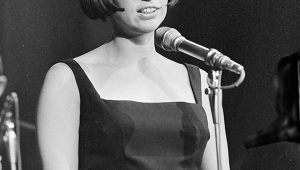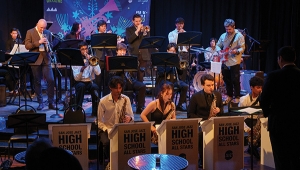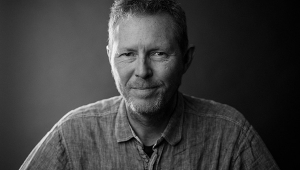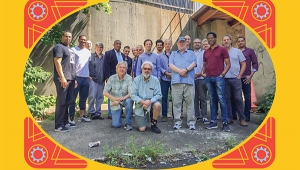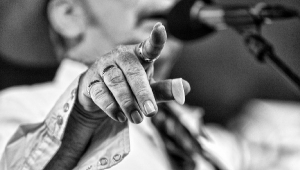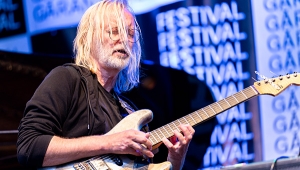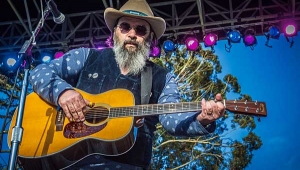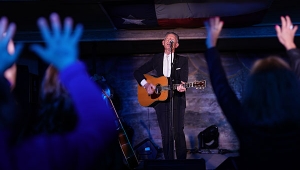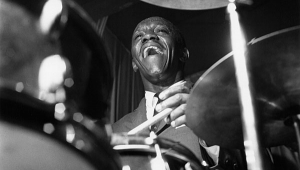| Columns Retired Columns & Blogs |
Building a Library: The Grateful Dead Page 2
So now what? What can a library of Grateful Dead music do, when the essence was what happened live? A library of Grateful Dead recordings will serve as a catalyst for bold ideas and a reminder to those possessed by the inevitable moments of confusion that they "Gotta make it somehow on the dreams you still believe" (footnote 3). Or, as Lao Tzu said,
Footnote 3: "Comes A Time," by Garcia-Hunter, from Hundred Year Hall.
Breathe harmony.
Become tranquility.
As the ten thousand things rise and fall,
rise and fall,
just witness their return to the root.
Everything that flourishes dissolves again into the source.
To dissolve back into the source is to find peace.
To find peace is to recover your true nature....
Insight opens your mind (footnote 4).
The library of Dead recordings bears witness to this rise and fall, to the search for the groove. It's an historical record of those who had the courage to explore and were not afraid to wonder and wander in public. In the liner notes for Grayfolded, which splices together fragments of "Dark Star" from scores of different concerts recorded over 25 years, ethnomusicologist Rob Bowman quotes composer Jon Oswald as saying, "part of their music that interested me was the segues between tunes, the transformations between one piece into another piece, those tenuous sections where they are looking for the groove which will be either an improvisation or another song." A Grateful Dead library captures these ten thousand searches, the amusement, the simplicity, the grace, the stumbling.
A Grateful Dead CD library possesses the record of the elements that make the music "gel." The CDs provoke thought and deliver emotional content. Nowhere is this more apparent than in the quintessential recording of "Dark Star" on Live/Dead, or on Grayfolded. The Live/Dead "Dark Star" is one of the most powerful compositions of 20th-century music; in concert, the song could instigate a musical conversation that could last half the night---or, as in Grayfolded, over many years. When people think of seminal electronic music composition, the rock world tends to be overlooked. But "Dark Star" successfully transcends the constraints of traditional metered western music and succeeds in opening up the beat and the tonality instead of being anchored to them; it ranges like hungry cattle, yet finds its way home.
An open mind leads to an open heart. Building a Grateful Dead library is stringing that necklace together with a flawed bead so as not to insult the gods. There are hours of dawdling confusion in everything from CDs to board masters, but when the Dead are "flying in formation" (footnote 5), the music is an expression of the divine. In concert or on disc, one may wade through muddy jams, but
Clarity is learned by being patient in the presence of chaos.
Tolerating disarray, remaining at rest,
gradually one learns to allow muddy water to settle and proper responses to reveal themselves... (footnote 6).
Footnote 3: "Comes A Time," by Garcia-Hunter, from Hundred Year Hall.
Footnote 4: Lao Tzu, Tao Te Ching, Brian Brown Walker, trans.; St. Martin's Press, 1995.
Footnote 5: Phil Lesh, radio interview with David Gans; as reported in Teleconference, 10/95.
Footnote 6: Lao Tzu, ibid.
- Log in or register to post comments
